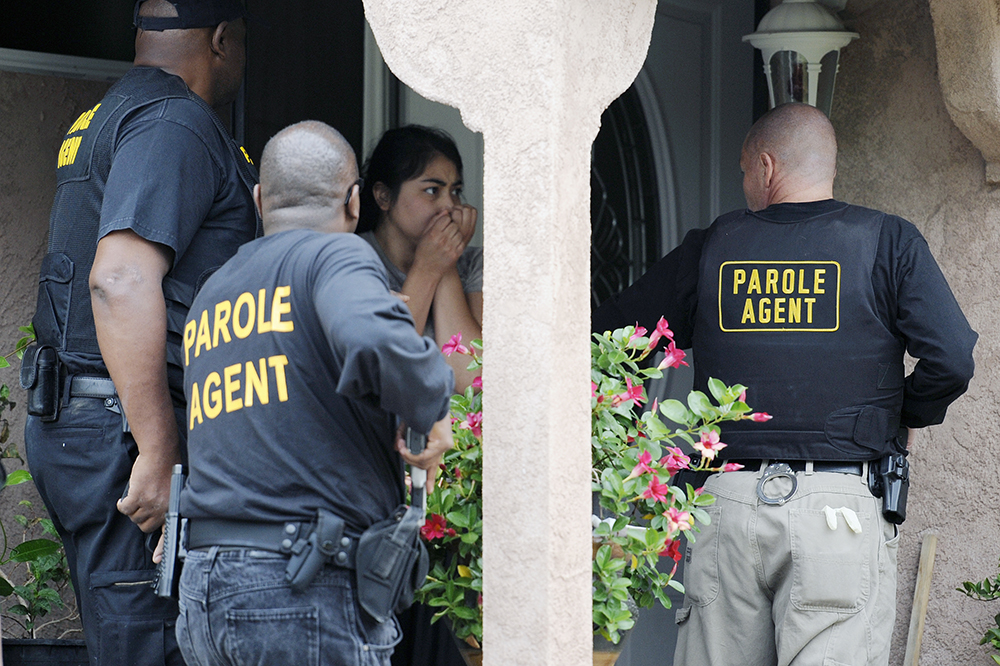
in State v. Cornwell, the WA Supreme Court held that Article I, section 7 of the Washington Constitution requires a nexus between the property searched and the suspected probation violation. Here, there was no nexus between the defendant’s failure to report to DOC and the car which the defendant was driving.
BACKGROUND FACTS
In September 2013, petitioner Curtis Lament Cornwell was placed on probation. His judgment and sentence allowed his probation officer to impose conditions of his release, which included the following provision:
“I am aware that I am subject to search and seizure of my person, residence, automobile, or other personal property if there is reasonable cause on the part of the Department of Corrections to believe that I have violated the conditions/requirements or instructions above.”
Cornwell failed to report to the Department of Corrections (DOC) in violation of his probation, and DOC subsequently issued a warrant for his arrest.
Cornwell first came to the attention of Tacoma Police Department Officer Randy Frisbie and CCO Thomas Grabski because of a distinctive Chevrolet Monte Carlo observed outside a house suspected of being a site for drug sales and prostitution. An officer conducted a records check and determined he had an outstanding warrant.
In late November 2014, Officer Frisbie testified that he intended to stop the vehicle because he believed Cornwell was driving it and he had an outstanding warrant. He did not initiate the stop based on any belief that the car contained drugs or a gun or because he observed a traffic violation.
Before Officer Frisbie could activate his police lights, the car pulled into a driveway and Cornwell began to exit it. Cornwell ignored Officer Frisbie’s orders to stay in the vehicle, and Officer Frisbie believed Cornwell was attempting to distance himself from the car. Officer Frisbie then ordered Cornwell to the ground. Cornwell started to lower himself in apparent compliance before jumping up and running. Cornwell was apprehended after both officers deployed their tasers. He had $1,573 on his person at the time of arrest.
After securing Cornwell, Officer Patterson called CCO Grabski to the scene. Upon arrival, CCO Grabski searched the Monte Carlo. He described the basis for his search as follows:
“When people are in violation of probation, they’re subject to search. So he’s driving a vehicle, he has a felony warrant for his arrest by DOC, which is in violation of his probation. He’s driving the vehicle, he has the ability to access to enter the vehicle, so I’m searching the car to make sure there’s no further violations of his probation.”
In this case, CCO Grabski found a black nylon bag sitting on the front seat of the car. The bag contained oxycodone, amphetamine and methamphetamine pills, sim cards, and small spoons. A cell phone was also found in the car.
Cornwell moved pursuant to CrR 3.6 to suppress the evidence obtained during the vehicle search. The trial court denied the motion.
A jury convicted Cornwell of three counts of unlawful possession of a controlled substance with intent to deliver and one count of resisting arrest. The Court of Appeals affirmed the conviction. The WA Supreme Court granted review on the issue of whether the search of the car Cornwell was driving an unlawful search.
COURT’S ANALYSIS & CONCLUSIONS
The WA Supreme Court held that individuals on probation are not entitled to the full protection of the Constitution. The Court reasoned that probationers have a reduced expectations of privacy because they are serving their time outside the prison walls. Accordingly, it is constitutionally permissible for a CCO to search an individual based only on a well-founded or reasonable suspicion of a probation violation, rather than a search warrant supported by probable cause.
However, the Court also also reasoned that the goals of the probation process can be accomplished with rules and procedures that provide both the necessary societal protections as well as the necessary constitutional protections.
“Limiting the scope of a CCO’s search to property reasonably believed to have a nexus with the suspected probation violation protects the privacy and dignity of individuals on probation while still allowing the State ample supervision,” said the Court. “We therefore hold that article I, section 7 permits a warrantless search of the property of an individual on probation only where there is a nexus between the property searched and the alleged probation violation.”
The Court reasoned that the CCO’s search of Cornwell’s car exceeded its lawful scope.
“While CCO Grabski may have suspected Cornwell violated other probation conditions, the only probation violation supported by the record is Cornwell’s failure to report,” said the Court. It also reasoned that CCO Grabski’s testimony at the suppression hearing confirmed that he had no expectation that the search would produce evidence of Cornwell’s failure to report.
“In this case, the search of Cornwell’s vehicle was unlawful because there was no nexus between the search and his suspected probation violation of failure to report to DOC,” concluded the Court. “The evidence seized during the search should have been suppressed. Accordingly, we reverse the Court of Appeals and Cornwell’s convictions.”
Please contact my office if you, a friend or family member were subject to an unlawful search. It is imperative to hire experienced and competent defense counsel to suppress evidence of an unlawful search as quickly as possible.







